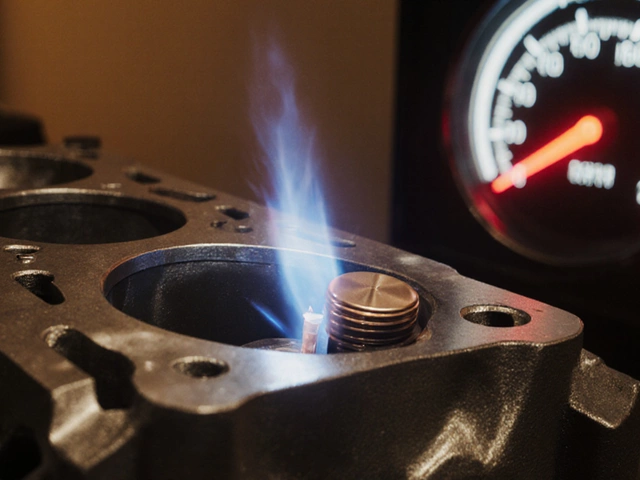Ever thought about jazzing up your ride with a full system exhaust? You're probably eyeing that sweet performance boost or that deep growl it offers. But here's the kicker—it's not just about performance; you've got to think legal, too. So, is installing a full exhaust system illegal? Well, it depends on where you park your car.
Let’s break it down. Essentially, a full system exhaust replaces everything from the engine to the tailpipe. It can definitely give you a kick in the horsepower department. But, legality can vary wildly. Some places welcome the change, others will slap you with a fine faster than you can say 'Vroom.' Different regions have different noise and emissions standards. So, before you go swapping parts, it's worth knowing your local laws.
In some areas, exhaust mods are a straightforward no-go unless approved by specific regulations. Other regions, especially here in Europe, focus heavily on emissions. If your new exhaust system makes your car flunk an emissions test, you're in trouble. Also, noise is another hot topic—if your souped-up exhaust wakes up the neighborhood, you're probably on the wrong side of the law.
- Understanding Full System Exhausts
- Legal Regulations Across Regions
- Consequences of Non-compliance
- Staying Legal and Efficient
Understanding Full System Exhausts
When car enthusiasts talk about a full system exhaust, they’re referring to a setup that replaces the car’s entire existing exhaust system, right from the engine block all the way to the tailpipe. It’s basically a makeover for your car's respiratory system. This system includes parts like the headers, downpipe, mid-pipe, and muffler, all engineered to improve performance and sound.
Full system exhausts can majorly boost your car’s performance by reducing back pressure. This means the exhaust gases can leave the engine more efficiently, which can squeeze out a bit more horsepower and torque—important for those who love speed or need that extra grunt for towing or hauling. And let’s not forget that throaty roar that turns heads!
However, it’s not just about popping in new pipes and hitting the road. Different cars require different systems, and it’s crucial to get one that fits your vehicle. Various manufacturers produce these systems, and the choice can depend on your vehicle make and model, as well as personal preference for sound and performance level.
Why Consider a Full System Exhaust?
Many gearheads go for a full system upgrade for the following reasons:
- Performance: As mentioned, you get improved horsepower and torque.
- Sound: A customized exhaust gives your car that unique, aggressive rumble.
- Weight Reduction: Aftermarket systems are often lighter than stock exhausts, which can help improve fuel efficiency slightly.
It’s important to note, though, that these benefits can vary depending on the car and the specific setup. Always weigh the pros and cons for your particular situation before making a decision.
If you’re thinking of making the switch, be ready to invest time and money into research and possibly consultations with professionals to ensure compatibility and compliance with regulations.
Legal Regulations Across Regions
So, you're ready to upgrade to that full system exhaust, but what's the law saying about it in your neck of the woods? Let’s dive into how different parts of the world deal with exhaust modifications.
United States
The U.S. is a mixed bag when it comes to exhaust laws. Largely, regulations depend on state laws rather than federal. California, for instance, is notorious for its strict emissions rules, all falling under the California Air Resources Board (CARB). If your exhaust system doesn't come with a CARB approval, it's pretty much considered illegal. Other states might be more lenient, but don't take that as a green light. Always check state and even county regulations.
United Kingdom
Over here in good old Britain, it's all about noise and emissions. The UK's MoT test will determine if your full system exhaust passes the noise level requirements. If it’s too loud, it's a no-go. Additionally, it mustn't interfere with emissions control. If your exhaust changes the emissions output, it won't be road-legal.
Australia
Down under in Australia, you're dealing with both state and federal regulations. Australia focuses heavily on emissions too. Each state has its own specific noise and emissions laws, so a legal mod in Queensland might be illegal in New South Wales. Your best bet? Make sure your new exhaust complies with the Australian Desing Rules (ADR).
European Union
The EU? Well, you’re looking at a holistic approach with the European Commission setting broad standards. Each member country has to comply, but local tweaks are possible. Emissions and noise are strictly monitored. If your exhaust system doesn't align with the EU regulations, it’s back to the drawing board.
Before you modify, think local. Get in touch with local vehicle regulatory bodies to avoid mishaps. One illegal mod could lead to some hefty fines or worse—your car could be taken off the road. It's wise to double-check everything before making such changes. Trust me, that little extra effort is worth avoiding future headaches.

Consequences of Non-compliance
So, you've decided to roll with a full system exhaust without checking if it's all above board. Well, hold on—there are some serious downsides you might want to consider. Authorities aren't exactly lenient, and getting caught with illegal modifications can lead to more than just a slap on the wrist.
First up, you could face hefty fines. Depending on where you are, getting ticketed for illegal exhaust modifications can hurt your wallet. It's not uncommon to see fines ranging from a couple hundred to even thousands of pounds or dollars. That's just pocket change, right? But do you really want to risk it?
Even worse, there's a chance your vehicle could be impounded. Imagine the inconvenience of not just paying a fine, but also dealing with towing, storage, and whatever hoops you have to jump through to get your car back on the road.
Impact on Insurance
Insurance companies aren't too thrilled when they find out about unreported modifications either. A non-compliant exhaust system could lead to higher premiums or, in some cases, cancellation of your policy. They're in the business of minimizing risk, and a mod that could make your car louder or impact emissions isn't exactly low-risk.
Failed Emissions Tests
Another thing to watch out for—failed emissions tests. If your exhaust system doesn't meet environmental standards, you're going to have a tough time passing the tests required to keep your car legally on the road. No pass means no drive, and possibly more costs as you try to rectify the situation.
- Noise complaints leading to fines or orders to fix the issue.
- Possible impact on car resale value—no one wants a vehicle that's not road legal.
- Negative impact on community reputation—nobody appreciates a neighbor with a constantly roaring engine.
Essentially, running with an illegal exhaust system isn't just a slap on the wrist. It's a series of potential headaches and costs that could easily be avoided by doing your homework and making sure your system is compliant.
Staying Legal and Efficient
So, you fancy a full system exhaust but don't want to rack up fines or fail inspections. Here’s a simple playbook to keep things smooth and legal.
Select the Right System
First, make sure you pick an exhaust that's compliant. It often means getting one that's been tested and approved for road use in your region. The key is to look for national or regional certifications, like the ECE approval mark in Europe. This can save you heaps of hassle.
Know Your Local Laws
No two places are the same when it comes to emissions and noise laws. Get familiar with what's legal in your area. Some places allow full system exhaust modifications as long as they're within specified noise levels, usually measured in decibels. Others have stringent emissions tests. Sometimes, doing a quick check on your local Department of Motor Vehicles or equivalent can provide clarity.
Regular Maintenance
Even after installation, you've got to keep that exhaust in tip-top shape. Rust, leaks, or damage can lead to increased emissions or noise, which might tip you out of compliance. Regular checks can avoid major headaches later.
Consider Professional Installation
Unless you're a seasoned pro, think about getting a professional to install your exhaust system. They’ll have the knowledge to ensure everything is fitted correctly according to all legal requirements.
Having an exhaust installed with proper legal documentation is crucial. Keep those papers handy—just in case you have to prove your exhaust setup is up to snuff.
Document Everything
Whenever you make a modification, keep all related receipts and certification documents. This paperwork might help verify your car's compliance during inspections.
Keep an Eye on Changes
Laws and regulations can shift faster than a sports car off the line. Regularly checking for updates in exhaust regulations ensures you're always driving legally and efficiently.
Keep these pointers in mind, and you won't just have a full system exhaust that sounds and performs great; you'll also have peace of mind knowing it’s perfectly legit!






